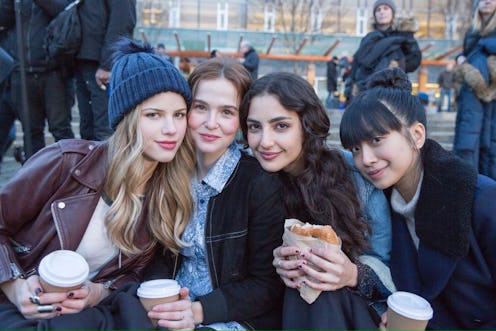Books
Lauren Oliver: Why Don't People Take YA Seriously?

Why don’t people take teen books seriously? Obviously, teen books are of differing quality and aspire to do very different things. Some books are meant to entertain. Some are meant to inspire. Some are meant to provoke dialogue or explore controversial questions. And some are presumably just meant to pay the bills, or to satisfy the editor who’s on your ass about missed deadlines.
But just as it makes no sense to talk about “adult books” — encompassing everything from The Satanic Verses to Fifty Shades of Grey — as a single category, it shouldn’t be meaningful or even possible to make monolithic judgments about the vast multitude of books — roughly ten thousand of them, domestically — published primarily for and about adolescents every year.
And yet people do speak about teen books that way — as a single category, one that, more often than not, needs to be either zealously defended or rigorously cautioned against. This made more sense when teen books represented such a narrow slice of the literary world that they could be — and were often — grouped together on a single shelf in the back of the bookstore, as they were during my teenage years. But the same febrile explosion of books written for and about young adults, the same cultural ascendancy that has rendered either broad critiques of the category or the impassioned defense of it possible (and some would say necessary), should at the same time prohibit any such sweeping judgments from being valid at all.
...it shouldn’t be meaningful or even possible to make monolithic judgments about the vast multitude of books — roughly ten thousand of them, domestically — published primarily for and about adolescents every year.
Underpinning any contemptuous dismissal of many thousands of books is the idea, simply, that teen experience has nothing of worth to explore, that teen characters have nothing of worth to say, and that as a result books written about them have nothing to teach us, no “value” apart from that of mindless entertainment. (Never mind that that is true of many adult books as well.) But this, too, is deeply suspicious. Why should adolescent experience, which is defined primarily by seismic changes in identity, by a profound rupture with inherited childhood beliefs and an exploration of independent values, social mores, sexual and religious identity, and ethical belief-systems, have nothing to teach a population that more than ever explores these same questions continuously through much of life? Teen literature is primarily literature of the Self, and whether we like it or not, no literature could be more fitting of America, long-defined by its promises of reinvention; or of the modern age, which can be metaphorically conceived as one prolonged adolescent rebellion against the social, religious, and cultural rules of its parents.
Teen literature is primarily literature of the Self, and whether we like it or not, no literature could be more fitting of America, long-defined by its promises of reinvention...
Much has been written about the way that books written by women, and primarily featuring women, are treated by the literary world, and I won’t reiterate it: the problem with pointing out perceived disparities in the treatment of women, as a woman, is that the very people you most want to convince are those most likely to dismiss you as a deluded whiner. But I will say that at its heart, teen literature, and the entrenched belief on the part of “serious” critics that it is a category to be dismissed or gamely ignored, gives rise once again to the central question about who and what gets to stand for universal experience; about whose story has intrinsic value, and whose does not.
Before I Fall by Lauren Oliver
I’ve been gratified by critics who have been moved and affected by the Before I Fall adaptation, and also chagrined that their approval comes with a healthy (and seemingly unconscious) profession of sheepishness. Even the critics that laud the film and its treatment of themes related to time and meaning profess to being amazed — in fact, baffled — that a film so obviously unmeant for them in fact was, for all intents and purposes, speaking to them after all. But why should that be shocking? I have been watching movies about grown male heroes my whole life; it never occurred to me that these were not meant for me. It was not even an option to believe that. Stories of male heroes are, implicitly, meant for everybody.
Even the critics that laud the film and its treatment of themes related to time and meaning profess to being amazed — in fact, baffled — that a film so obviously unmeant for them in fact was, for all intents and purposes, speaking to them after all.
The stories of teen girls, grown women, and people of color are culturally minimized by the kind of lazy thinking that has assigned only one kind of person, narrative, and voice as being universally definitive. Not all stories are worth reading, watching, or hearing, but it is a failure of both imagination and cognition to believe you can identify the ones that are by virtue of who is doing the telling.
The film adaptation of Lauren Oliver's bestselling first novel, Before I Fall, will open in theaters on March 3.
Lauren Oliver is the New York Times bestselling author of the YA novels Replica, Before I Fall, Vanishing Girls, Panic, and the Delirium trilogy: Delirium, Pandemonium, and Requiem, which have been translated into more than 30 languages.
A graduate of the University of Chicago and NYU’s MFA program, Lauren Oliver is also the cofounder of content development company Paper Lantern Lit.